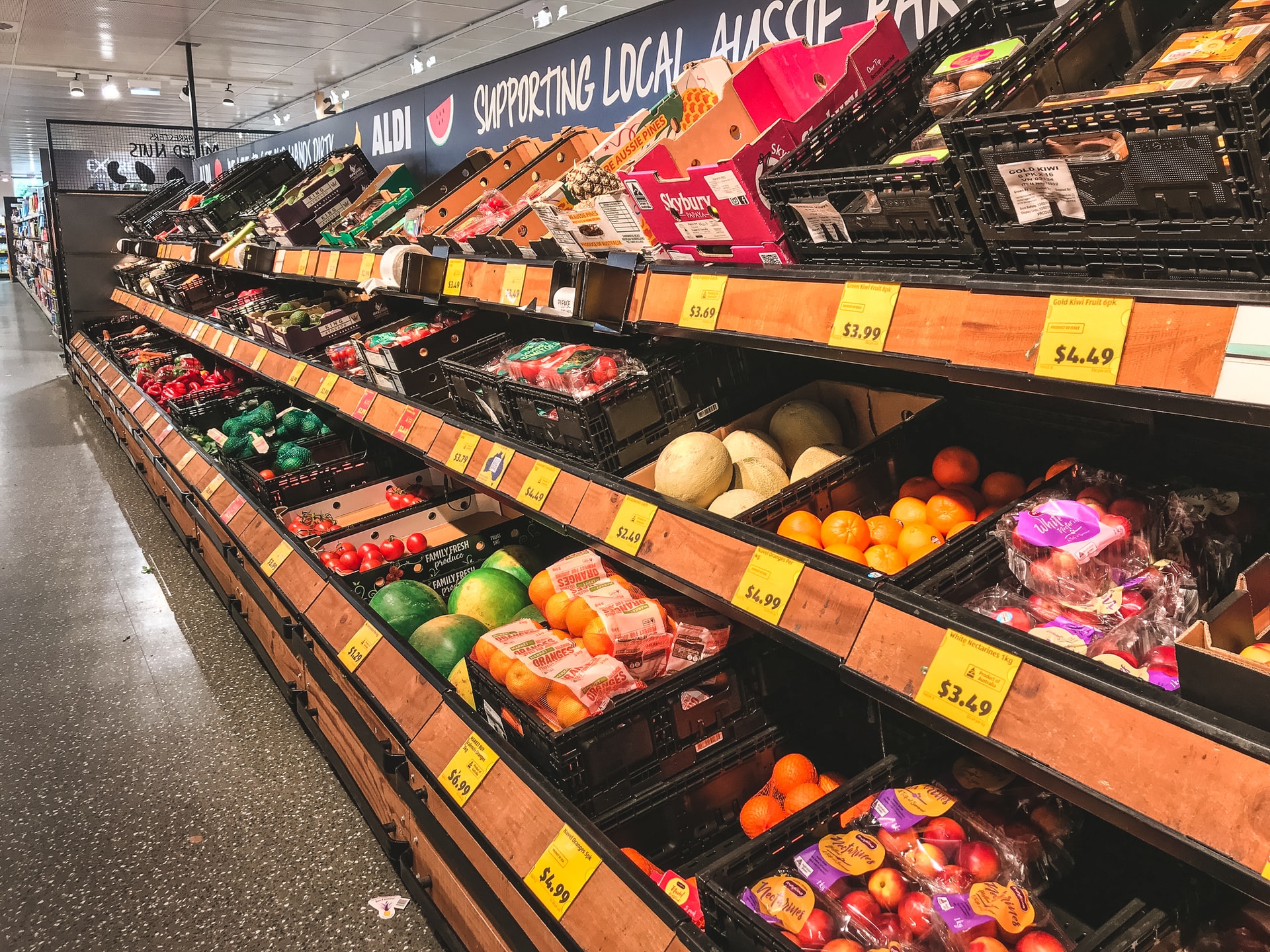This article showcases our top picks for the Best CRM Software For Grocery Stores. We reached out to industry leaders and experts who have contributed the suggestions within this article (they have been credited for their contributions below).
We are keen to hear your feedback on all of our content and our comment section is a moderated space to express your thoughts and feelings related (or not) to this article This list is in no particular order.
Monday

This product was recommended by Muhammad Mateen Khan from PureVPN
monday.com CRM for retailers is a powerful solution that takes away the complexity of a CRM by way of a powerful visual tool. By treating the tracking of prospects and clients as a simple to-do list, the platform lets you manage your pipeline from lead to post-project without missing a step. monday.com consolidates all information and communication in one place while speeding up your sales process. Its filter and expansive customization tools let you manage deals in a way that suits exactly how you want to work.
Retail CRM Cloud

This product was recommended by Christian Bolz from Retail CRM Cloud
Retail CRM Cloud, firstly because it can be used equally well for online stores and physical stores as due to Covid many supermarkets have both. And secondly, because of its retailer app, as it improves customer engagement and sales.
Platformly

This product was recommended by Bradley Stevens from LLC Formations
Platformly brings you intelligent marketing automation for your online business. Big business dashboards, CRM, tracking, marketing automation, lead capture, analytics & reporting. The software fulfills all the basic needs of a grocery store for CRM software. Platfromly makes it easy to track and manage multiple campaigns. The software also acts as a guide and tells you which marketing strategy will help you get better results. Apart from CRM, it offers many other features like link tracking, lead capture, email marketing, etc. This software offers its users a 15-day free trial before they have to pay for the services. At $49.00 per month, you can avail the growth pack which offers all the services with certain limits, and at $99.00 per month, you can get the unlimited package that offers limitless services.
Agile CRM

This product was recommended by Mike Bran from ThrillAppeal
Agile CRM is an all in one package that allows you to fully integrate CRM with sales tracking, contact management, marketing automation, web analytics, 2-way emails, and telephony. As a grocery store manager, you’ll find everything automated just with a single software. You can use this software to monitor customer behavior and activity and readily respond and make changes as per your need. This is an easy to use software with everything managed through a drag and drop editor. Agile CRM comes with four different pricing plans. There’s a free version that only allows only ten users to use the software’s services. The starter plan costs $8.99 per month, followed by a regular plan, which costs $29.99 per month and is also the most frequently used pricing plan of Agile CRM. Finally, there’s the enterprise package valued at $47.99 per month. With increasing prices in packages, the number of services offered is also increased, whereas the limitations reduce.
POS Nation

This product was recommended by Mark Coster from Web Design for Businesses
Previously known as CAP Retail Point of Sale, this software integrates the POS (Point of Sale) with CRM (Customer Relationship Management) aspects, while taking into account all specificities of the latter when it comes to brick and mortar grocery stores. Usually, it’s difficult to track and nurture personal relationships with individual customers. Suppose a person comes in and looks for a delicious bagel that they had bought last time, but can’t remember which brand or variety it was? You can help them by looking up their purchasing history! The system is all-inclusive and will eliminate the need for any third-party add-ons that are required by most other solutions. The only objection is that getting used to it takes some time. But the outstanding customer service compensates for it!
Epos Now Software

This product was recommended by Levi Li from Best.wiki
In case you are looking for best quality CRM software then you choice should be Epos Now. Designed for small to midsized businesses. It has Features like POINT SALE modulation, offers integrated Inventory Management, Customer Management, and Retail Accounting, including general ledger, purchase orders, and payroll processing etc. It is supported by all major platforms like windows, android, IOS, Linux etc. It also supports cloud base as well. In one word, this software has everything a business owner can ask for.
Freshworks

This product was recommended by Janet Patterson from Highway Title Loans
Freshworks is a cloud and mobile-based CRM software that deals with clients, and also helps you to improve your marketing and sales position alongside. The software comes with pipeline management, automation, and communication modules which can help you to draw leads in, manage customers, and also gain an understanding of campaigns to launch next. Freshworks also enables its users to automate each step of the sales pipeline, and the customer relationships so that the platform can manage your tasks for you. If you’re not sure whether you’d want to move ahead with this CRM software, it also comes with a 21-day free trial for you to test-run it and see if the software suits your needs. I highly recommend integrating Freshworks for your grocery store because it provides a multi-channel communication system, promotes team collaboration throughout, and automates all CRM related workflows which ease the daily task and customer management. Pricing starts at $19/month per user.
EngageBay

This product was recommended by Damon Routzhan from Concrete Candles
EngageBay is a diverse rich platform, which offers sales, marketing, and CRM features all in one. It’s a one-stop solution for all your retail business needs like any big or enterprise-level CRM. It comes packed with provides an array of features for email marketing, sales automation, lead nurturing, and appointment scheduling. Another great thing about this CRM is that it keeps track of customer behavior at all times, through all the platforms that you have integrated with it. It also provides an analysis of the market trends, which is great for any business. I’d highly recommend getting EngageBay as your grocery store’s CRM as it will enable you to access all relevant client data from one place, keep an eye out for all your leads and watch their behavior, and also generate reports for visual growth. EngageBay’s basic plan is free.
HubSpot CRM

This product was recommended by Robin Brown from Vivipins
HubSpot is one of the easiest leading CRM software to use. It doesn’t take much to integrate this software into your existing workflow. It helps the grocery retailers of all sizes to track their leads and analyze all the business metrics. This software is suggested to grocery stores because it is not complex at all to use and works transparently. It also allows you to increase your contacts with 20 million businesses on its database and allows easy and smooth communication with partners. The starter plan costs around $45 per month, which is affordable for most grocery stores, however, they do have a number of features listed as free.
Salesforce CRM

This product was recommended by Robin Brown from Vivipins
Salesforce is one of the leading CRM software providers. The Salesforce CRM provides you with an AI engine, the Salesforce Einstein, that allows you to analyze the preferences of customers and helps you in improving your conversion rate. Salesforce doesn’t just provide CRM software, it also provides analytics, marketing, and cloud services. The pricing starts at $25/month per user.
















